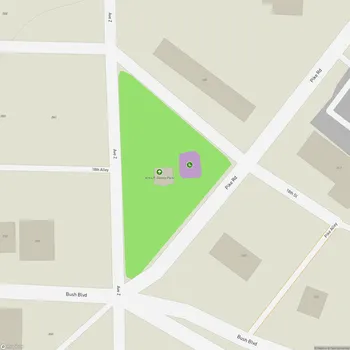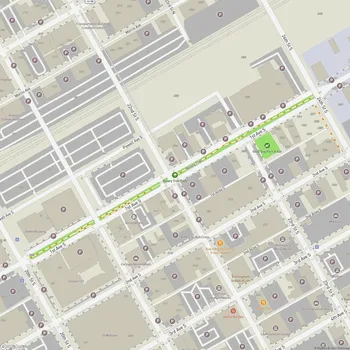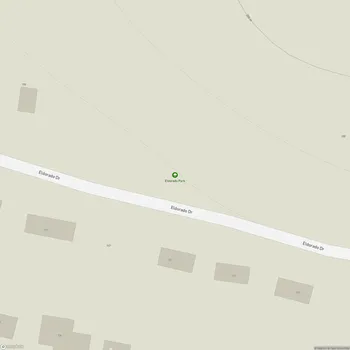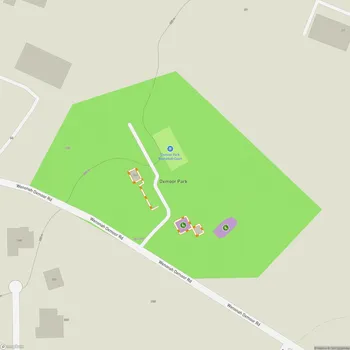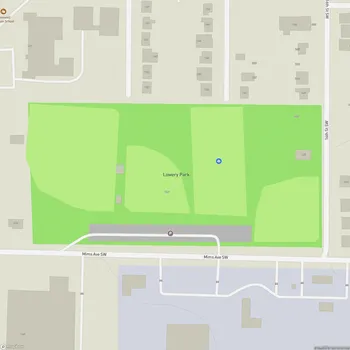Kelly Ingram Park
Interactive Park Map
About Kelly Ingram Park
A Place of History & Reflection
Situated in the heart of Birmingham, Kelly Ingram Park spans 4 acres bounded by 16th and 17th Streets and 5th and 6th Avenues North in the Birmingham Civil Rights District. While it began life as West Park, it took on a new identity in 1932, renamed to honor Osmond Kelly Ingram, the first American sailor to lose his life in World War I.
But it's the park's role in the Civil Rights Movement that defines its place in American history. This unassuming green space became ground zero for pivotal demonstrations in the 1960s. In May 1963, these grounds witnessed one of the movement's most shocking moments when Birmingham police and firefighters, following orders from Public Safety Commissioner Eugene "Bull" Connor, turned police dogs and high-pressure fire hoses against peaceful protesters - many of them just children.
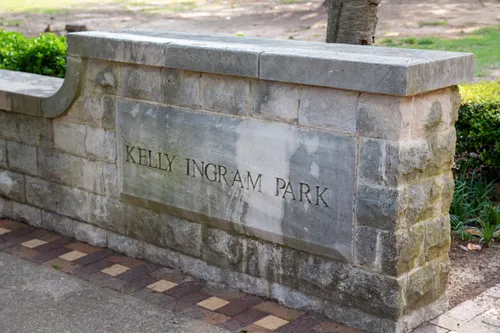
Walking Through History
In 1992, the park underwent a transformation, being renovated and rededicated as "A Place of Revolution and Reconciliation."
Today, the park is an open-air memorial with sculptures that do more than commemorate history - they evoke powerful emotions. A central fountain provides a peaceful counterpoint to the powerful artworks across the grounds, including a dignified statue of Dr. Martin Luther King Jr.. Perhaps most moving are the three installations created by artist James Drake along the park's circular "Freedom Walk."
These sculptures depict history in an immersive way, bringing you face-to-face with the terror and sorrow of those 1963 confrontations. It's worth remembering that photographs of these very events, broadcast around the world, helped awaken the nation's conscience to the struggle for racial equality.
Monuments That Move You
As you explore further, you'll encounter the "Four Spirits" sculpture by Elizabeth MacQueen, a heartbreaking yet beautiful tribute to the four young girls killed in the 16th Street Baptist Church bombing. Additional monuments honor other civil rights figures and the countless "foot soldiers" who risked everything for the movement.
Throughout the park, interpretive signs provide context and background. Each monument includes informational plaques, and you can access an audio tour by phone if you want to deepen your understanding of what you're seeing.
The craftsmanship of these sculptures is remarkable - lifelike and deeply evocative. Walking through the park can be a moving experience, as the artworks connect you emotionally to this difficult chapter of American history.
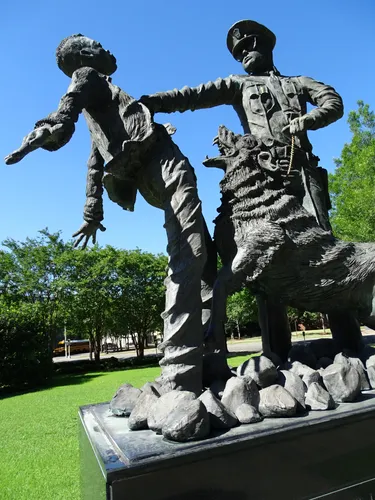
Practical Information
The park is fully paved and wheelchair accessible, making it navigable for everyone. It's well-maintained, with benches placed throughout when you need a moment to sit and reflect.
Note that there are no restrooms or playground equipment within the park itself. There are plenty of shaded areas and paved walking paths, and while there are no designated picnic tables, the open grassy areas make for a nice spot to sit for a while. Dogs are welcome as long as they're leashed, but remember to bring supplies to clean up after them.
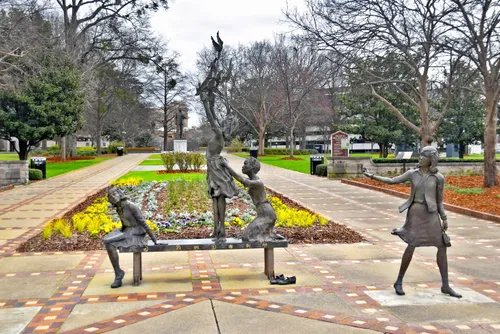
Part of Something Bigger
Kelly Ingram Park sits across from the Birmingham Civil Rights Institute and the historic 16th Street Baptist Church, making it a central element of Birmingham's Civil Rights District.
Recognized for its historical importance, the park was listed in the National Register of Historic Places in 1984 and is included in the Birmingham Civil Rights National Monument, established in 2017.
For the most meaningful experience, consider exploring the park as part of a broader visit to the Civil Rights District. Many visitors find that taking a guided tour helps them fully appreciate the profound historical significance of this powerful space.
All Features & Facilities
Nature & Wildlife
Visitor Services
Food & Gathering
Photo Gallery (click to enlarge)


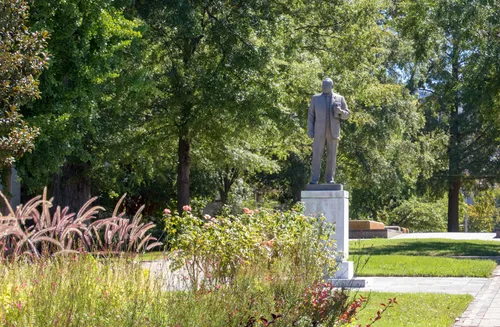
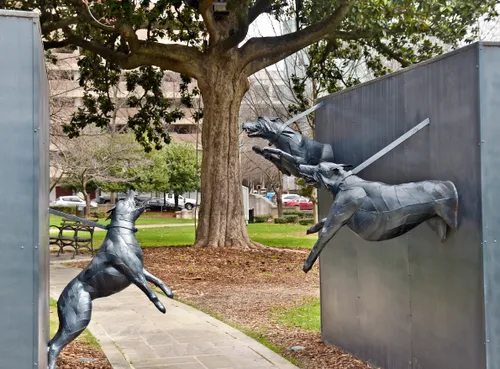
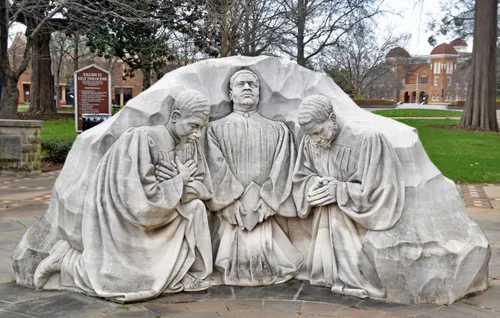
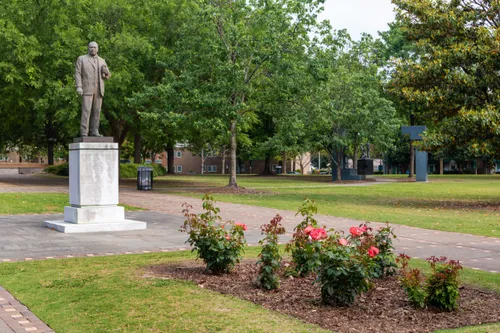
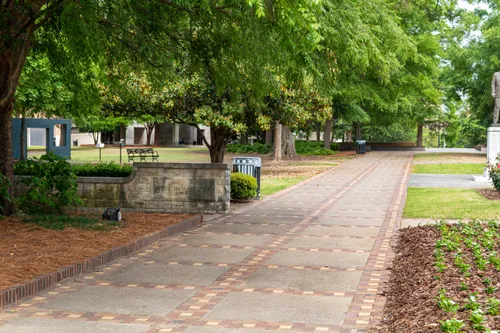

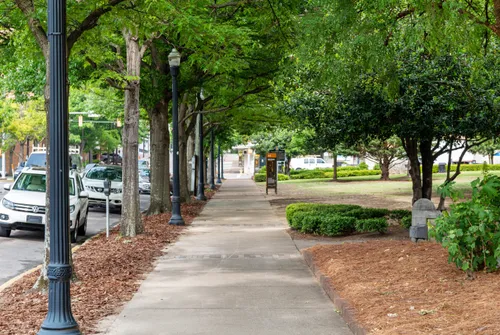
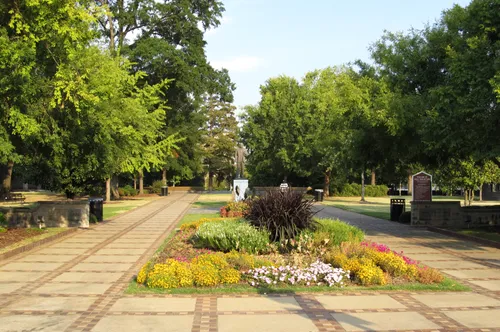
ParkMagnet Score
Good Park
Park Size
Opening Hours
Weather
Top Restaurants Near Kelly Ingram Park
Paramount - Downtown Birmingham
0.3 miles200 20th St N, Birmingham, AL 35203
Creative pub fare and cocktails served in an industrial-chic setting with vintage arcade games.
Trattoria Zaza
0.4 miles207A 20th St N, Birmingham, AL 35203
Trendy Italian spot featuring creative pizzas with crispy crusts and fresh seasonal ingredients in a casual setting.
The Fennec - Sports Bar & Grill, Live Music, Events
0.6 miles1630 2nd Ave S, Birmingham, AL 35233
American sports bar and grill featuring live music, outdoor seating, and popular dishes like burgers and tacos.
Texas de Brazil - Birmingham
0.7 miles2301 Richard Arrington Jr Blvd N, Birmingham, AL 35203
Upscale Brazilian steakhouse serving all-you-can-eat grilled meats carved tableside with extensive salad bar.
Uptown Cantina
0.7 miles2301 Richard Arrington Jr Blvd N Unit 200, Birmingham, AL 35203
Upscale Mexican restaurant serving flavorful dishes, signature margaritas, and appetizers in a lively downtown atmosphere.
Outback Steakhouse
0.7 miles245 20th St S, Birmingham, AL 35233
Australian-themed steakhouse serving hearty American fare including steaks, seafood, and signature dishes in a casual atmosphere.
Top Hotels Near Kelly Ingram Park
Hampton Inn & Suites Birmingham-Downtown-Tutwiler
0.4 miles2021 Park Pl, Birmingham, AL 35203
Historic landmark hotel in downtown Birmingham offering elegant accommodations with an on-site restaurant and bar.
Fairfield Inn & Suites Birmingham Downtown
0.4 miles1918 1st Ave N, Birmingham, AL 35203
Modern downtown hotel offering comfortable accommodations with complimentary breakfast and fitness facilities.
Elyton Hotel, Autograph Collection
0.4 miles1928 1st Ave N, Birmingham, AL 35203
Historic 1909 building featuring chic accommodations with a farm-to-table restaurant and refined lounge.
Redmont Hotel Birmingham, Curio Collection by Hilton
0.4 miles2101 5th Ave N, Birmingham, AL 35203
Historic downtown hotel featuring upscale dining, rooftop cocktail lounge, fitness center, and sophisticated accommodations.
The Kelly Birmingham, Tapestry Collection by Hilton
0.5 miles2027 1st Ave N, Birmingham, AL 35203
A stylish hotel in a restored historic building featuring streamlined rooms with city views and modern amenities.
Sheraton Birmingham Hotel
0.5 miles2101 Richard Arrington Jr Blvd N, Birmingham, AL 35203
A conveniently located hotel near the convention center offering comfortable accommodations and professional service.



